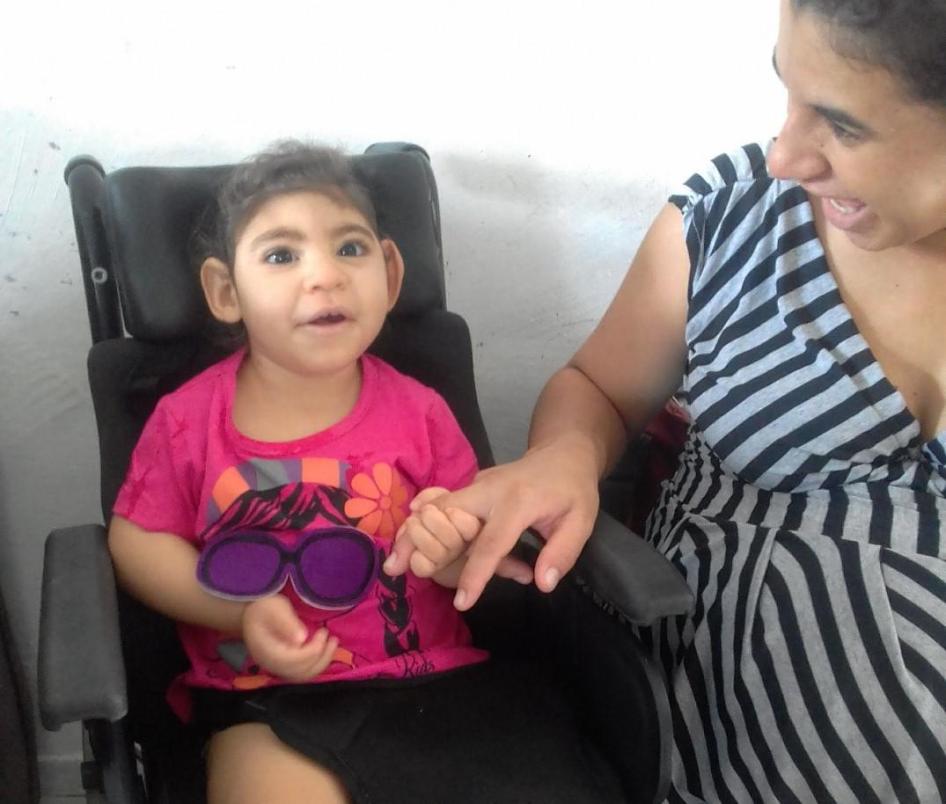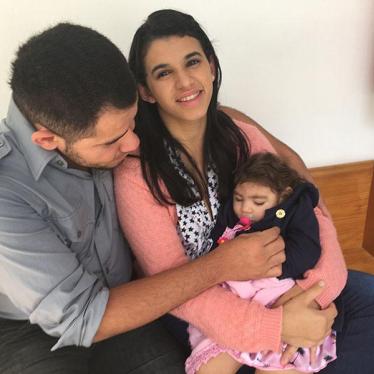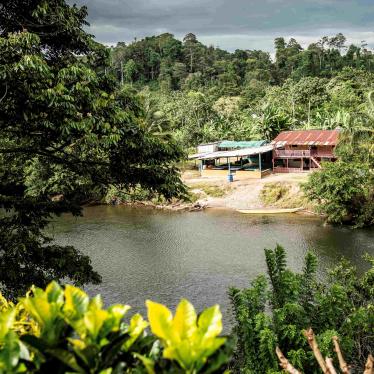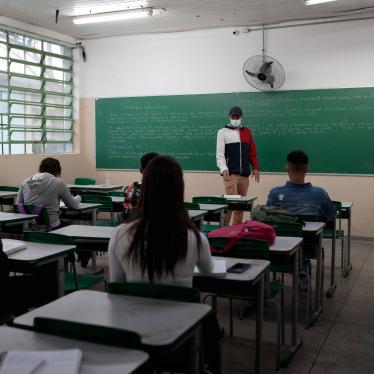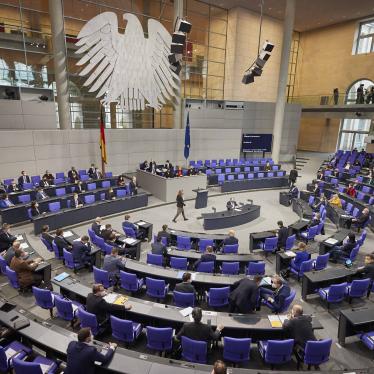Listening to the candidates running for president in Brazil, one would never know that just three years ago the Zika epidemic radically changed the lives of thousands of Brazilian families.
Maria Carolina Silva Flor (“Carol”) and Maria Paula, who asked us to identify her only by her first name, are two women who gave birth to children with congenital Zika syndrome during the 2015-2016 outbreak in northeastern Brazil. The very serious effects of the virus were not well known back then, and they could not imagine how their lives would change. Today, as their children grow, and their needs evolve and change, both mothers struggle to raise their children without adequate support from the government.
Carol’s municipality, Esperança, does not offer the services her daughter, Gabi, needs. So three times a week, she travels half an hour each way to Campina Grande, a larger city in Paraíba state, for appointments with doctors and specialists.
In Recife, Maria Paula has a wheelchair to help move her daughter, Mariana, who now weighs 13 kilograms, to her medical appointments twice a week. But the buses she takes are not accessible, so she leaves the wheelchair at home and carries Mariana in her arms.
I first met Maria Paula and Carol in late 2016 while doing research for a Human Rights Watch report on the impacts of the Zika outbreak in Brazil. We found that families raising children with congenital Zika syndrome don’t have the support they need, much less services that protect their basic human rights to life and health. People in the area have limited access to clean water and sanitation services, and women and girls lack comprehensive reproductive health information and services.
Over the last few months, I spoke to some of the mothers again, including Maria Paula and Carol. While their children have been able to get some health care, many of them found it difficult to get all the services they need, and in many cases, they worried about the quality of that care. They also reported difficulties in scheduling surgery, getting to health appointments, and buying expensive medicine. Recently, mothers of children with Zika syndrome in Campina Grande protested against the lack of beds in intensive care units for their children, which contributed to the death of one baby born with disabilities linked to the virus.
According to Ministry of Health data, as of June one-third of the children who have confirmed cases of congenital Zika syndrome have not been able to get primary pediatric care and two-thirds have not been able to get the specialized early stimulation that will be especially important for their development.
Caring for a child with congenital Zika syndrome is a strenuous routine without an adequate network of support services, such as personal assistance for parents. Some mothers described feeling emotionally exhausted, or said they faced discrimination or prejudice against them and their children at health centers or on public transportation. One mother told me that a bus driver initially refused to open the door for her and her daughter with Zika syndrome and then told her to “shut up” when she defended her daughter’s right to free transportation. The mother filed a complaint with local authorities, but after the hostile encounter, she developed panic attacks and felt unable to ride the bus and face the driver for several months. She couldn’t take her daughter to the therapy programs and medical appointments she needed. “I didn’t have the emotional state to take care of her,” she said.
Caregivers need support. One way of helping them is through providing day care centers with staff trained to work with children who have Zika syndrome. As one mother of a two-year-old boy with Zika syndrome told me, having day care that she trusted to meet her son’s special needs would enable her to look for a job that would help her support her son and get the services he needs.
The lack of community-based services and support could have devastating consequences for children with congenital Zika syndrome. A recent Human Rights Watch report found people with disabilities living confined in institutions under inhumane conditions, with little contact with the community. Many enter institutions as children and remain there for their entire lives. Without the proper support, children with congenital Zika syndrome could end up in the same institutions.
At the height of the outbreak, Zika was all over the news, and authorities felt pressure to respond. But now, the families affected by the virus are in danger of being forgotten – by the public and the authorities. The decreasing number of children born with congenital Zika syndrome might give the impression that the Zika outbreak no longer requires attention from the state. Nothing could be further from the truth. For families with children affected by the epidemic, its consequences will last their whole life.
Maria Paula and Carol are trying to do the best for their kids, to give them the best quality of life they can have. Federal and local authorities should not leave them to struggle alone. These children need the best medical and developmental care available, and they need care within reach. Providing these services will not only help them and their families but will strengthen their entire communities.
